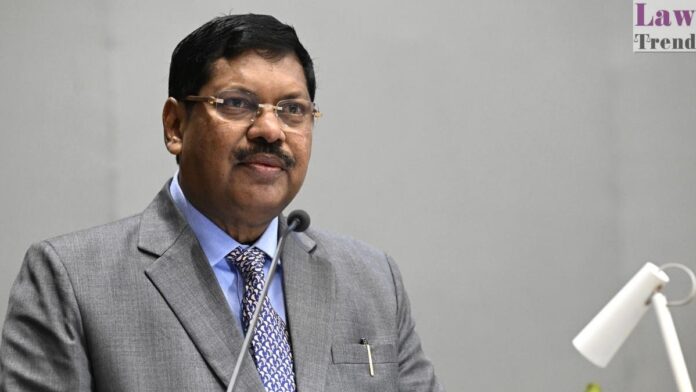In a candid and inspiring address, Chief Justice of India B.R. Gavai revealed that he was far from a model student, admitting he rarely attended classes in his final year of law school yet still secured a top-three rank. Speaking at the golden jubilee celebration of V.M. Salgaocar College of Law, he urged students to believe in determination and hard work over academic rankings, asserting that exam results are not the ultimate measure of success.
The Chief Justice shared a personal anecdote to drive home his point, recounting his unconventional path through law school. He confessed that a friend, who later became a High Court judge, would mark his attendance for him. “In Amravati, I think I might have gone to the college maybe half a dozen times,” CJI Gavai stated, explaining that he relied on guidebooks and past exam papers to prepare.
Despite his minimal attendance, he finished third in the university’s merit list. To illustrate how little these rankings predicted future trajectories, he outlined the careers of his peers. The student who topped the exam became a criminal lawyer specializing in bail, while the second-ranked student became a High Court judge. “I was at number three,” Gavai noted, “…and today I am the Chief Justice of India.”
His core message to the aspiring lawyers was unequivocal: “Don’t go by what your ranks are in the examination. The examination results do not determine what success you will achieve. It is your determination, hard work, dedication and commitment to the profession which matters.”
The CJI’s remarks followed a similar lighthearted confession from Bombay High Court Justice Mahesh S. Sonak, an alumnus of the college. Justice Sonak joked that with Miramar beach just a short walk away, he too was an “‘out-standing’ student,” often found more on the sand than in the library.
Beyond personal stories, CJI Gavai also addressed a systemic issue in legal education, cautioning against an exclusive focus on National Law Universities (NLUs). He stressed the importance of strengthening the entire legal education ecosystem, noting that many accomplished professionals emerge from smaller, taluka-level colleges that often lack resources. “Though NLUs are certainly important, they represent only a small fraction of the legal education ecosystem in India,” he said, advocating for broader support across all institutions.




